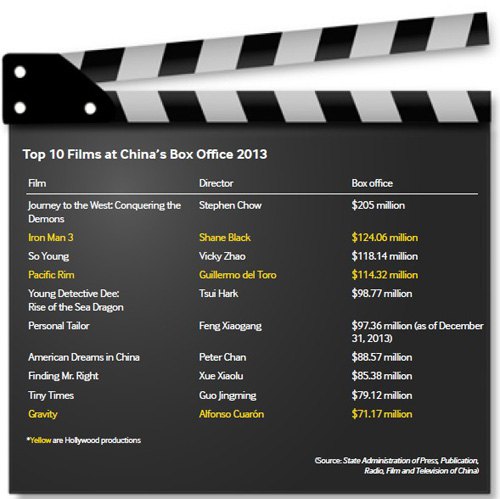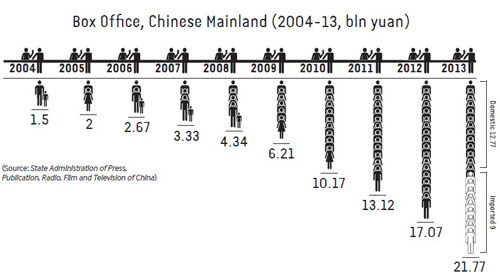|
"The Chinese film market is highly competitive. Every day there are new film companies emerging and many going bust. Filmmakers and investors are like gold miners. But very few of them really understand the market," Zhang said to China Newsweek. "We need to better understand our audiences and better target our marketing."
"Last year, all film companies felt the huge pressure of market competition. Producers are likely to face equal levels of stress this coming year," Zhang said.
The cinematic gamble
For most domestic film companies, box office receipts are their major, if not their only source of revenue. Thus, every film is a gamble for producers and investors.
Jessica Kam, a veteran Hong Kong film producer, said this single-profit model is chiefly responsible for the high risks involved in the Chinese film industry.
Kam has a wealth of Hollywood experience. Hollywood film companies earn around 70 percent of their revenue from film merchandise and other distribution channels. Only 30 percent of revenue comes from the box office. In contrast, box office receipts are responsible for as much as 90 percent of Chinese film companies' revenue, Kam told Entgroup, a research company of Chinese entertainment industry, in a recent interview.
Furthermore, film release dates frequently change, often spoiling the plans of film companies. Thus, box office revenue is always unpredictable. This reveals the immaturity of the Chinese film market, Kam said.
In Hollywood, many films with low box office earnings have the opportunity to bounce back via the distribution of Internet copyright and DVD sales, as well as toys and even theme park rides. Hollywood producers protect their bottom lines by developing various sideline projects and products to accompany their films.
For example, the U.S. film giant The Walt Disney Co. has 9,000 employees working on film productions, but in its subsidiary corporation Disney Consumer Products, there are 40,000 employees creating sideline products for Disney films, Kam said.
Many domestic film companies are beginning to realize this problem and they have made efforts to diversify their businesses and expand their range of film products. For example, on the heels of the September release of Young Detective Dee: Rise of the Sea Dragon, the H. Brothers launched a mobile phone game in order to supplement the film's box office revenue. The company is establishing an integrated industry chain that includes films, distribution, sideline products and games.
Email us at: baishi@bjreview.com


| 